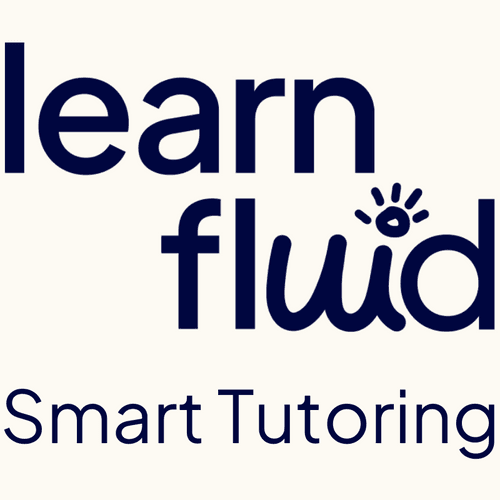
Science doesn’t have to feel like a wall of hard words and even harder ideas. From forces and particles to cells and chemical reactions, science topics can often feel overwhelming, especially when taught in a one-size-fits-all way. But a change in how subjects are explained can make a big difference. When students have time, space, and support to go through topics at their own pace, confidence builds and science becomes far less intimidating.
This is where the benefits of online tutoring start to show. With one-to-one sessions and personalised resources, students can spend time actually understanding the ideas being taught instead of simply trying to remember them. The structure of online tutoring makes it easier to pause, reflect, and ask questions without feeling like they’re slowing anyone else down. More importantly, it allows students to connect hard science topics to things they already know, making room for deeper learning that sticks.
Make Science Relatable
At its core, science is about how the world works. But for many students, it can feel far removed from everyday life. One of the most effective ways to help students truly learn science is by bringing those big scientific concepts down to earth.
Tutors often use real-life examples and simple comparisons to explain topics that might seem abstract on the surface. For example, when teaching electrical circuits, some tutors compare them to water flowing through pipes. This helps students picture it in their heads and gives them something familiar to hang the idea on. It’s a small shift that turns confusion into clarity.
Here are a few approaches that make science more relatable for students:
– Breaking long topics into small, clear parts
– Using objects or situations from everyday life, like cooking, sports, or music, to explain scientific ideas
– Giving students time to talk through their understanding in their own words
– Keeping the language simple, especially before introducing more formal terms
By finding examples that match the student’s world, tutors build a bridge between textbook theory and practical understanding. This isn’t about simplifying the subject too much. It’s about deepening understanding by making ideas stick in the student’s mind in ways that feel natural.
Interactive Learning Experience
One challenge with traditional learning is that students often only interact with science through textbooks and written notes. While these have their place, science comes alive when students can visualise it, test it, and play with the ideas behind it.
Online tutoring opens up access to tools that boost engagement. From drag-and-drop diagrams to simulations and short video explainers, digital platforms offer a range of experiences that help students stay involved. This kind of learning encourages curiosity and invites students to think more deeply about what they’re learning.
Animations and step-by-step visuals are especially helpful when it comes to complex topics like respiration or rock formation. They allow students to pause, rewind, and review, helping them absorb information at a comfortable pace rather than rushing to keep up with the class.
Interactive features support all types of learners—whether visual, auditory or hands-on. That flexibility gives students the freedom to work through confusing ideas in a way that makes the most sense to them. Understanding builds as they experiment, listen, or watch, not just read.
Personalised Learning Plans That Match Each Student
No two students learn in exactly the same way. Some grasp new concepts quickly, while others do better with time to reflect and ask questions. This is why personalised learning plans matter so much. When lessons are shaped around how a student actually learns, difficult topics become less confusing and more accessible.
Tutors building these plans take the time to learn where each student stands. The focus is less about ticking curriculum boxes and more about making sure students have a strong foundation. Instead of skipping over parts they find difficult, students stay with key topics until things truly make sense.
Here’s how personalised learning plans make an impact in science tutoring:
– They meet students at their current ability level, not just their year group
– They give extra time for difficult topics, without repeating material the student already understands
– They track actual understanding, not just whether the student has completed a task
– They are flexible and shift over time to keep pace with the student’s progress
This kind of approach builds confidence and supports long-term memory. Students feel understood, which reduces pressure and helps them make steady progress in challenging areas like kinetic theory or acid-base reactions. Rather than feeling left behind, students begin to feel more prepared and in control.
Real Impact On Student Performance
Personalised and consistent support often leads to more than just better test scores. When students feel supported, they start to believe they can truly master tough subjects like science. They ask more questions, think more logically, and stop relying only on memorising facts.
Take the example of a Year 10 student who had been struggling with biology—particularly with enzymes and the nervous system. She found the topics tricky in school and couldn’t retain the information. After having regular tutoring sessions focused on these areas, which included visual explanations, short quizzes, and worksheet feedback, she began to feel more confident. By the time her mock exam came around, she was explaining the processes rather than just memorising terms. Her teacher even noticed a shift in how she approached class discussions.
While each student’s journey is different, certain trends are common:
– Students make fewer careless mistakes in exams because they understand what’s being asked
– They build skills to apply what they’ve learnt instead of guessing
– They become more confident and active in their regular school lessons
– Multi-part questions feel less overwhelming because they’ve practised them in depth
These changes build over time through regular support. It’s more than achievement—it’s a change in how a student sees themselves when faced with something difficult. Once they know that their learning style matters and time is being spent where it’s needed, motivation often follows.
Support That Meets You Where You Are
Complex ideas in science don’t need to stay difficult. Explaining things at the right pace, using the right examples, and giving students control over their learning time can shift the entire experience. That’s the space online tutoring creates.
From chemistry equations to physics mechanics, there’s a way for each student to understand the topic in front of them. The tools and techniques that work best will depend on the learner, not just the syllabus. Whether it’s working through visuals, answering practice questions, or reviewing past feedback, tutoring can centre around what helps a student feel more prepared.
This time of year in the UK brings a real chance for students to focus. With mocks getting closer and autumn lessons well underway, now is the moment to reflect. What parts of science still feel unclear? What topics drag your confidence down?
There’s no better time to get help that suits the individual—not just the curriculum. By focusing on what makes sense to the student, real gains can happen. And rather than chasing top marks by cramming, students begin to reach them by understanding.
As students look to deepen their understanding in science and tackle the challenges they face, help is more accessible than ever. Explore how Learnfluid brings innovative solutions through expert guidance and personalised learning. Discover how online tutoring in science can support your learning journey and transform how you approach complex subjects today.
